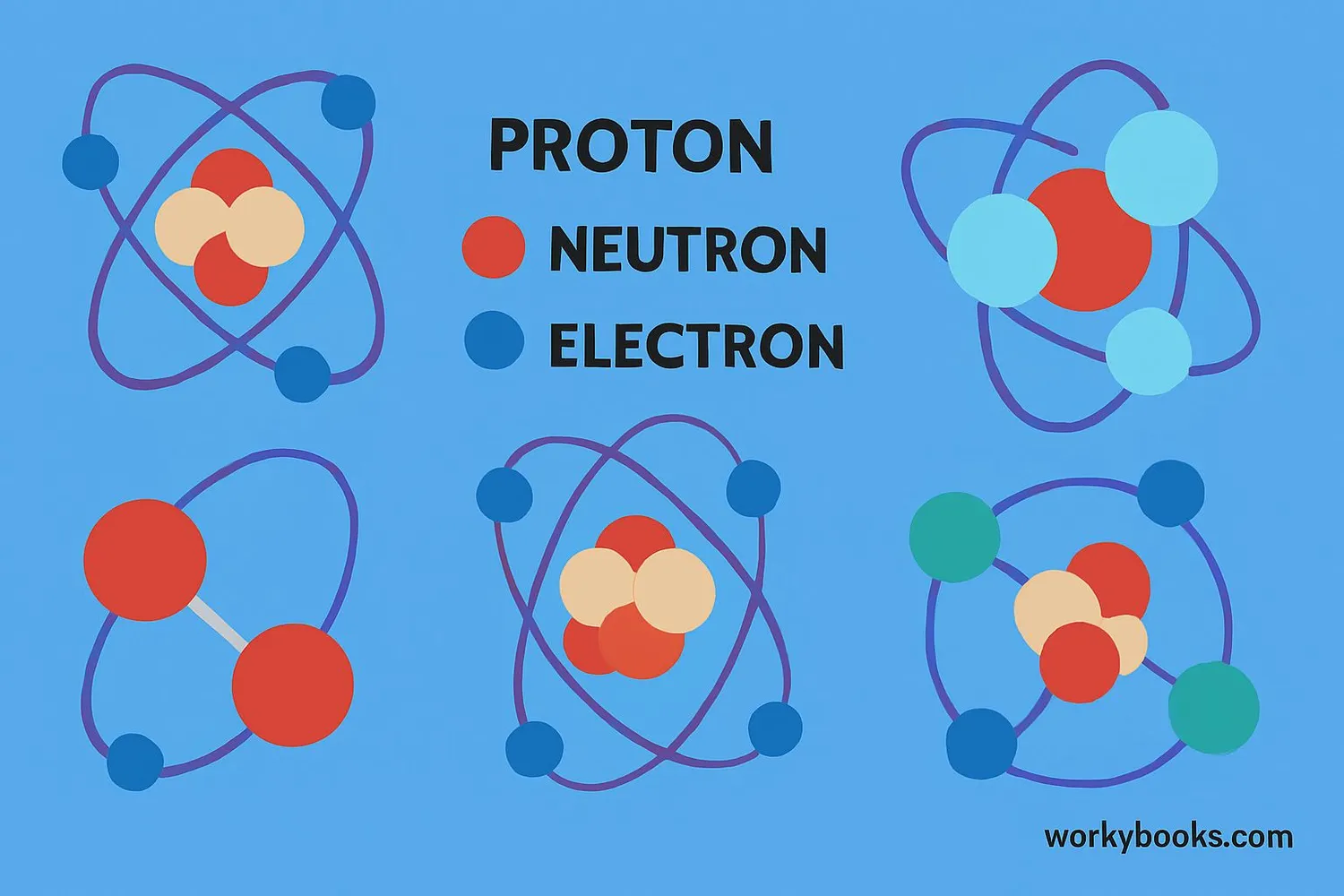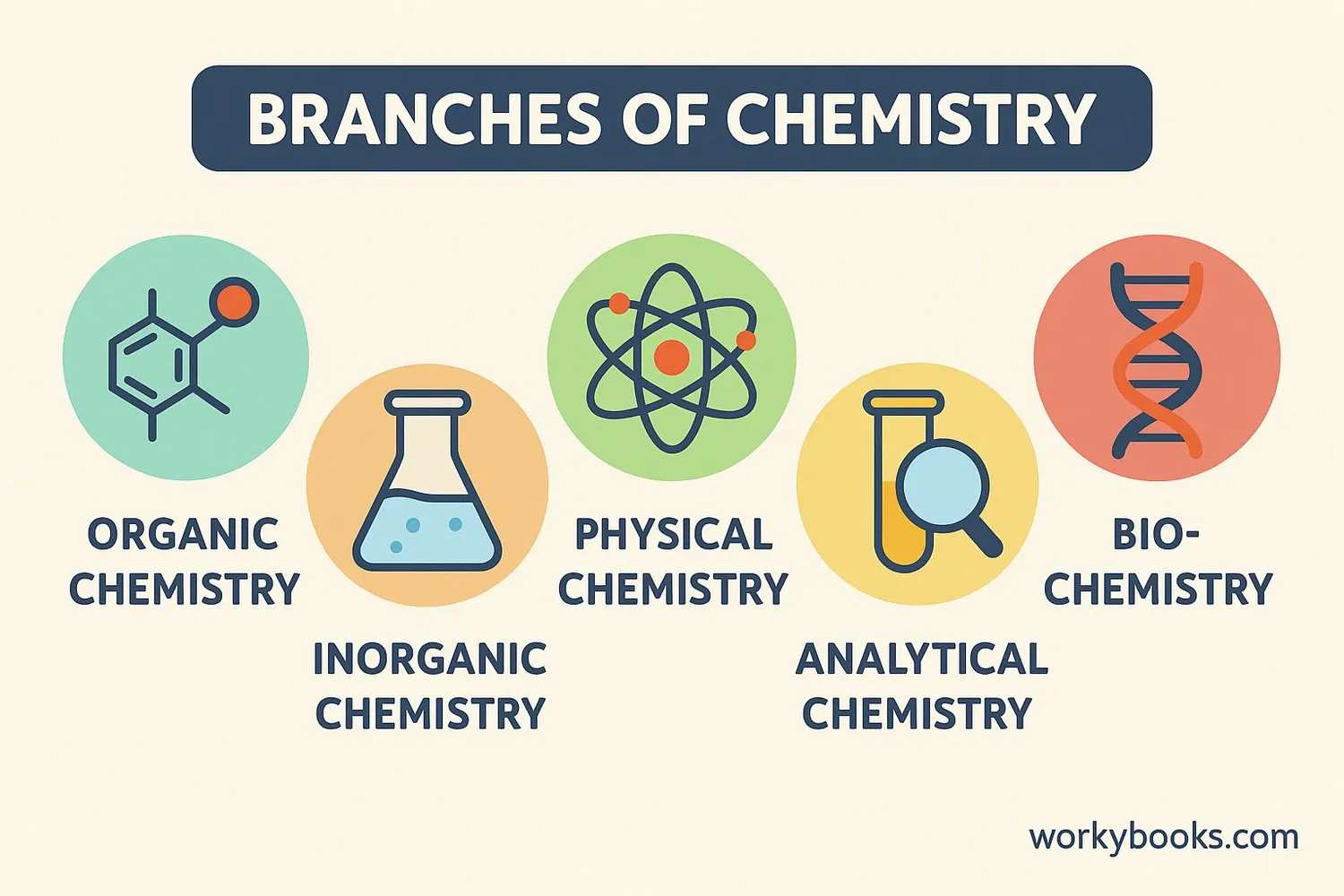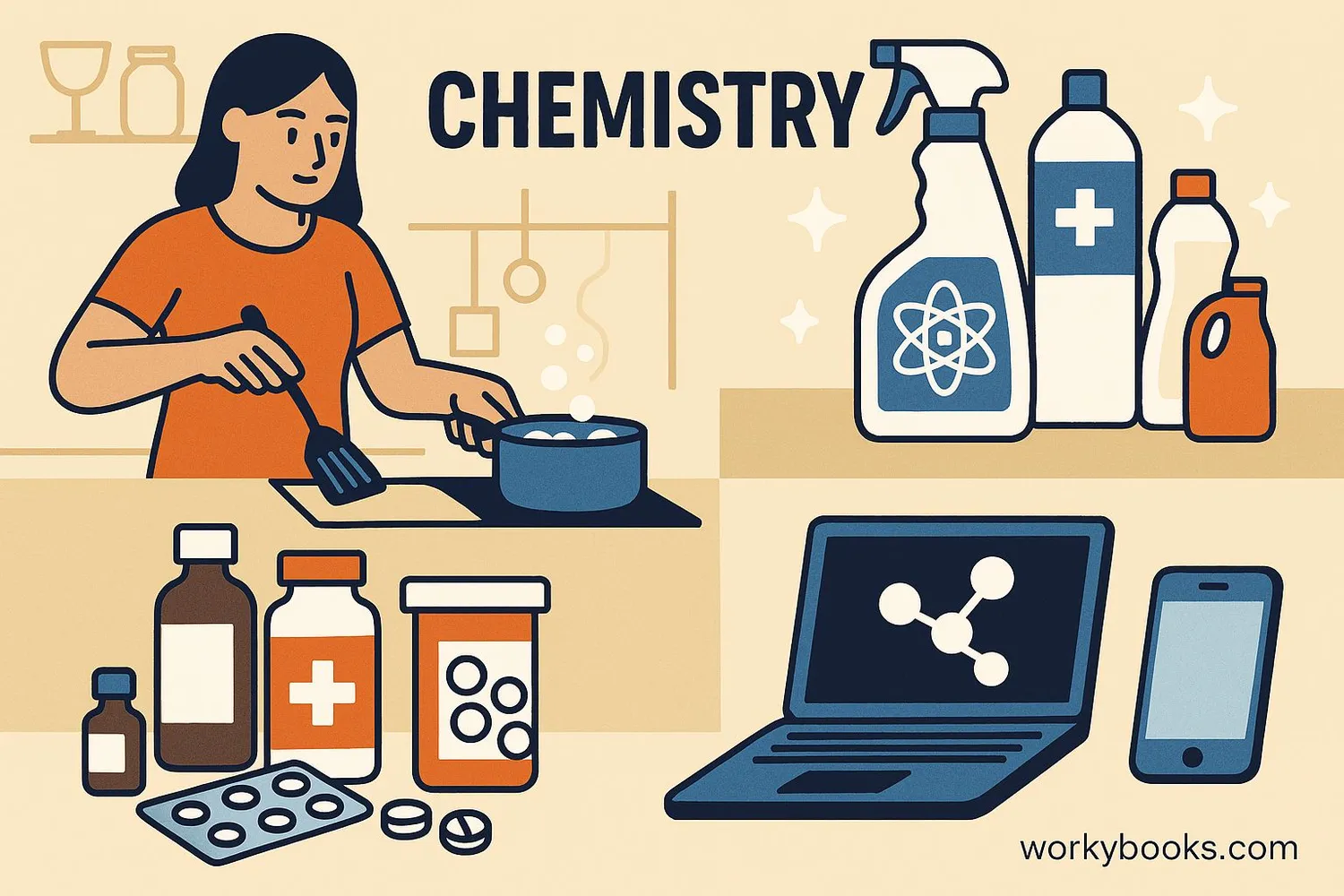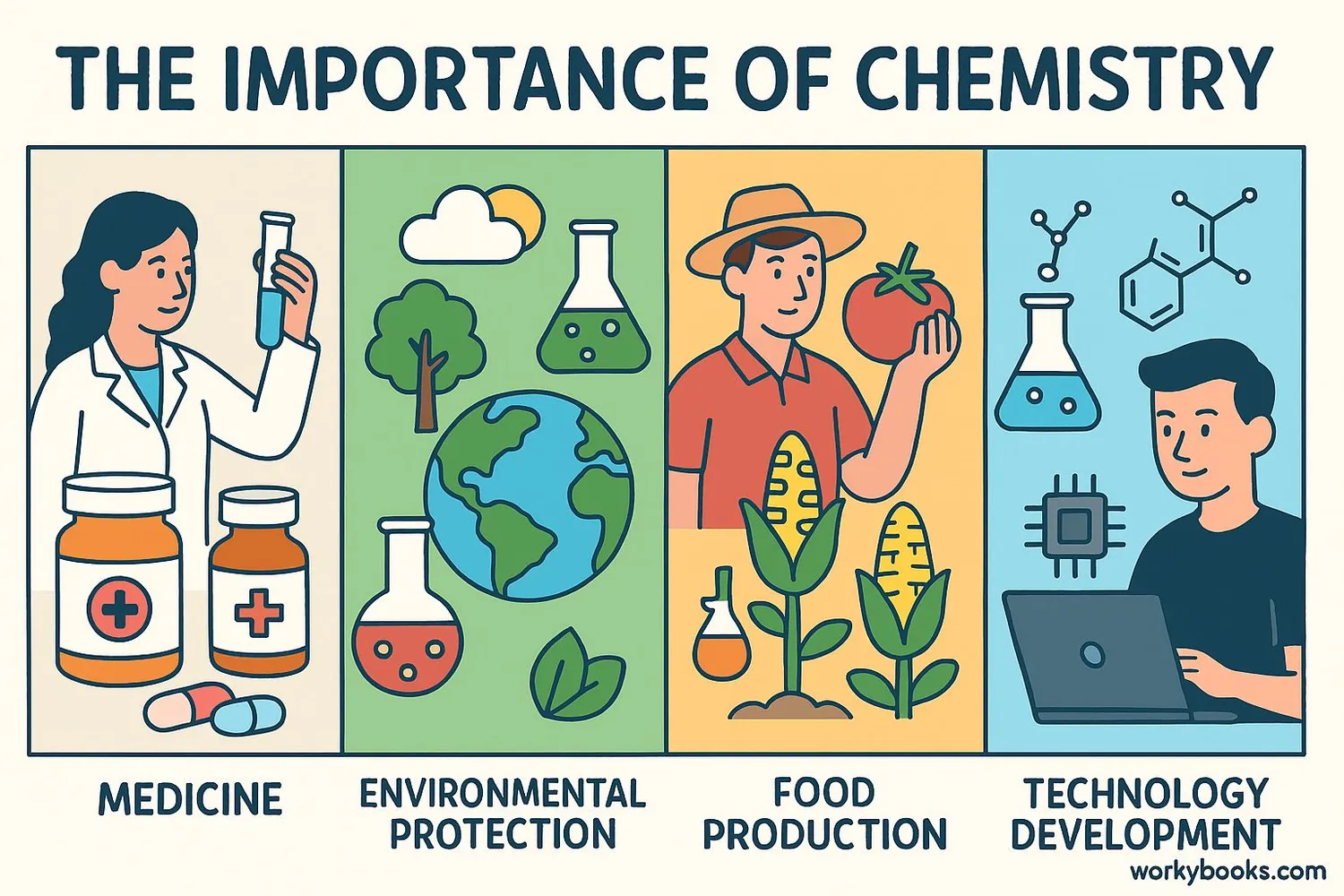Chemistry - Definition, Examples, Quiz, FAQ, Trivia
Discover how chemistry explains the world around us!
What is Chemistry?

Chemistry is the science that studies matter - everything that has mass and takes up space. It explores what substances are made of, how they interact, and how they change.
Everything around us is made of atoms, the tiny building blocks of matter. Chemistry helps us understand how these atoms combine to form different materials and why substances behave the way they do.
For example, chemistry explains why water freezes at 0°C, how baking soda makes cakes rise, and why leaves change color in the fall. It's like being a detective who investigates the materials that make up our world!
Chemistry Fact!
The word "chemistry" comes from the Arabic word "al-kimia" which means "the art of transformation"!
Branches of Chemistry

Chemistry is divided into several main branches, each focusing on different aspects of matter:
Organic Chemistry
Studies carbon-containing compounds, which form the basis of life
Inorganic Chemistry
Focuses on non-carbon compounds like minerals and metals
Physical Chemistry
Explores how matter behaves and how chemical reactions occur
Analytical Chemistry
Identifies and measures the composition of substances
Biochemistry
Studies chemical processes in living organisms
Each branch helps us understand different aspects of our world. For example, organic chemistry explains how medicines work, while biochemistry helps us understand how our bodies process food.
Did You Know?
There are over 100 different elements that combine in countless ways to form all the substances in our universe!
Chemistry in Daily Life

Chemistry isn't just in laboratories - it's part of our everyday lives! Here are some examples:
Cooking
Chemical reactions make bread rise and change food textures
Cleaning
Soaps and detergents use chemistry to remove dirt and grease
Medicine
Drugs are designed using chemistry to treat illnesses
Technology
Chemistry creates materials for phones, computers, and batteries
When you bake cookies, chemistry causes the dough to rise. When you wash your hands, chemistry helps soap remove germs. Even your smartphone relies on chemical processes in its battery and screen!
Understanding chemistry helps us make better products, develop new medicines, and solve environmental problems.
Why Chemistry Matters

Chemistry is essential for solving many of the world's challenges and improving our lives:
Health & Medicine
Chemistry helps develop life-saving medicines and medical treatments
Environment
Chemists develop solutions for pollution and climate change
Food Production
Chemistry improves crop growth and food preservation
Without chemistry, we wouldn't have:
• Medicines to treat diseases
• Clean drinking water systems
• Materials for modern technology
• Renewable energy solutions
• Safe food production methods
Chemistry also offers exciting career opportunities in research, industry, education, and environmental protection. It helps us understand our world at the most fundamental level!
Chemistry Quiz
Test your chemistry knowledge with this quiz! Answer all 5 questions to see how much you've learned.
Chemistry FAQs
Here are answers to common questions about chemistry:
Chemistry Trivia
Discover some amazing chemistry facts!
Unique Water
Water is the only natural substance on Earth that exists in all three physical states - solid, liquid, and gas - at temperatures found naturally on our planet!
Elemental Abundance
Oxygen is the most common element in Earth's crust, making up about 47% of it by weight. But in the entire universe, hydrogen is the most abundant element!
Golden Discovery
All the gold ever mined in human history would fit into just three Olympic-sized swimming pools! That's about 190,000 tons of gold.
DNA Length
If you could unravel all the DNA molecules in your body and place them end to end, they would stretch from Earth to the Sun and back over 600 times!





